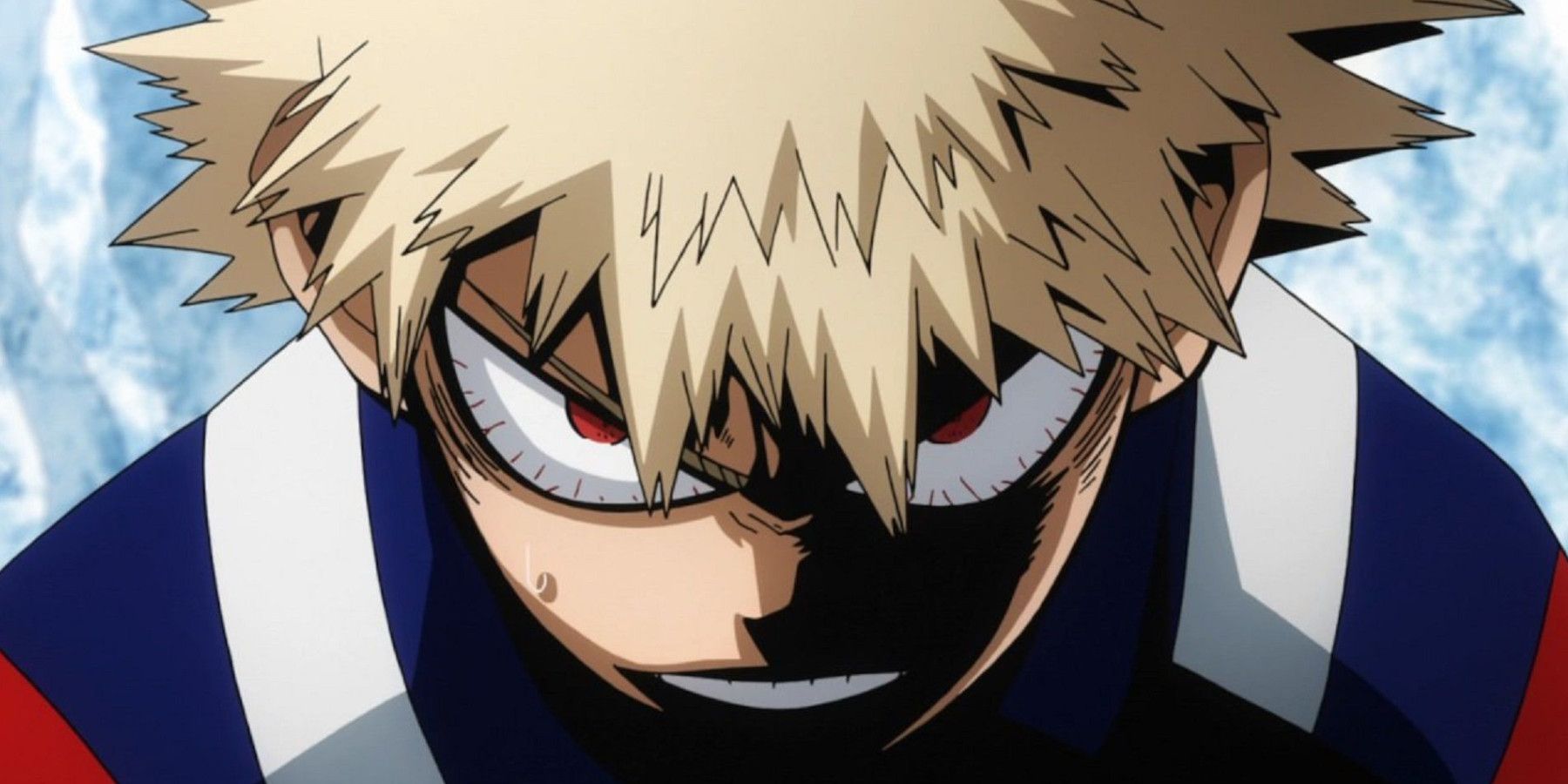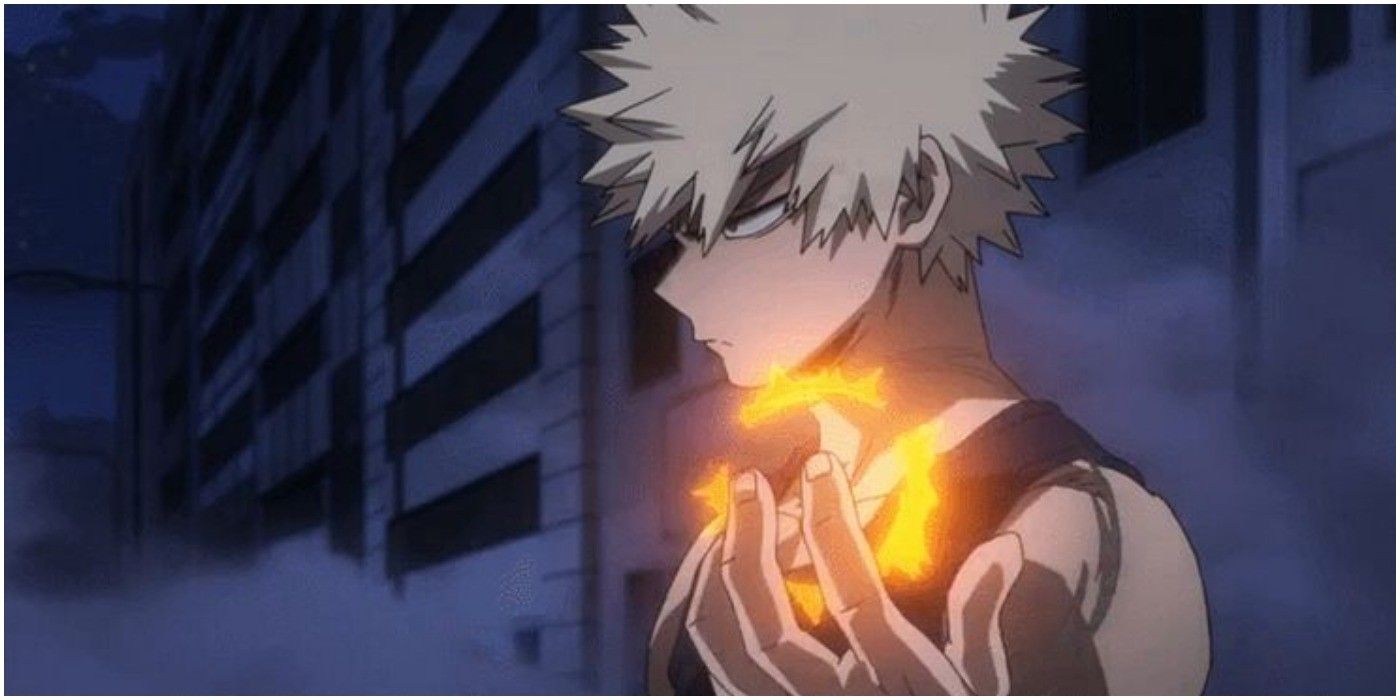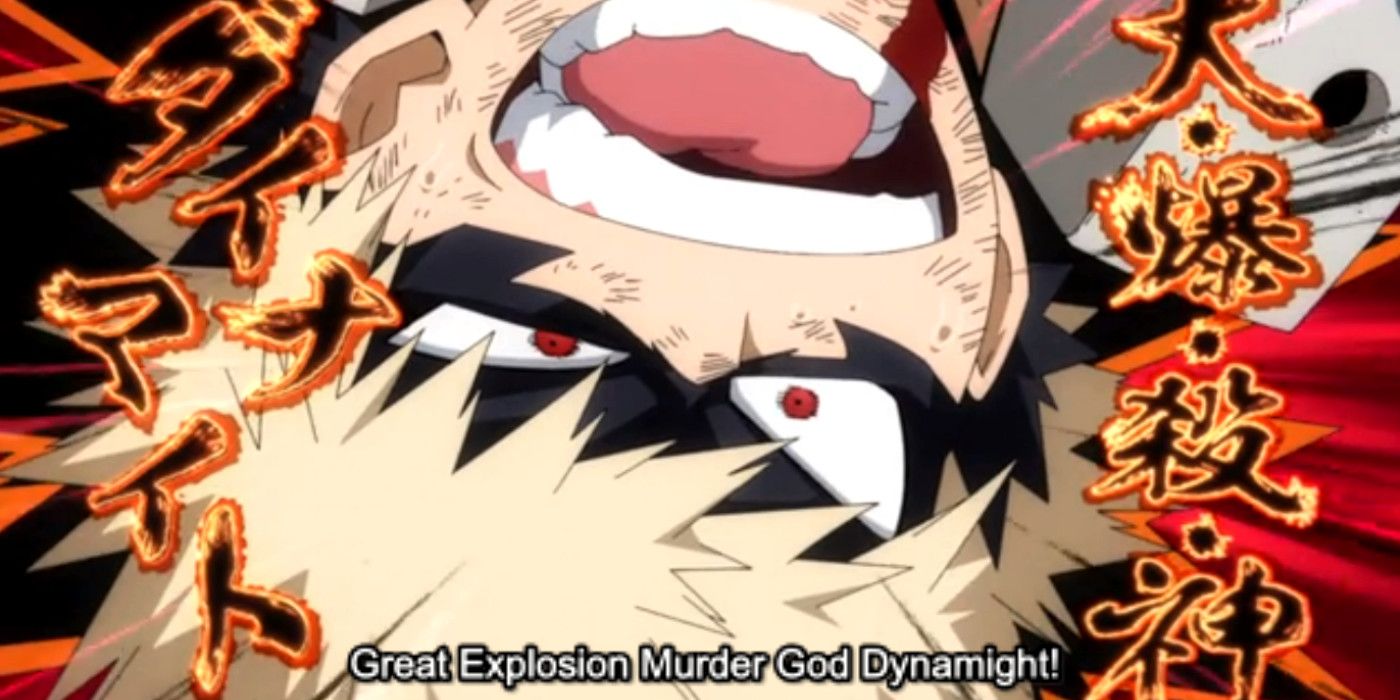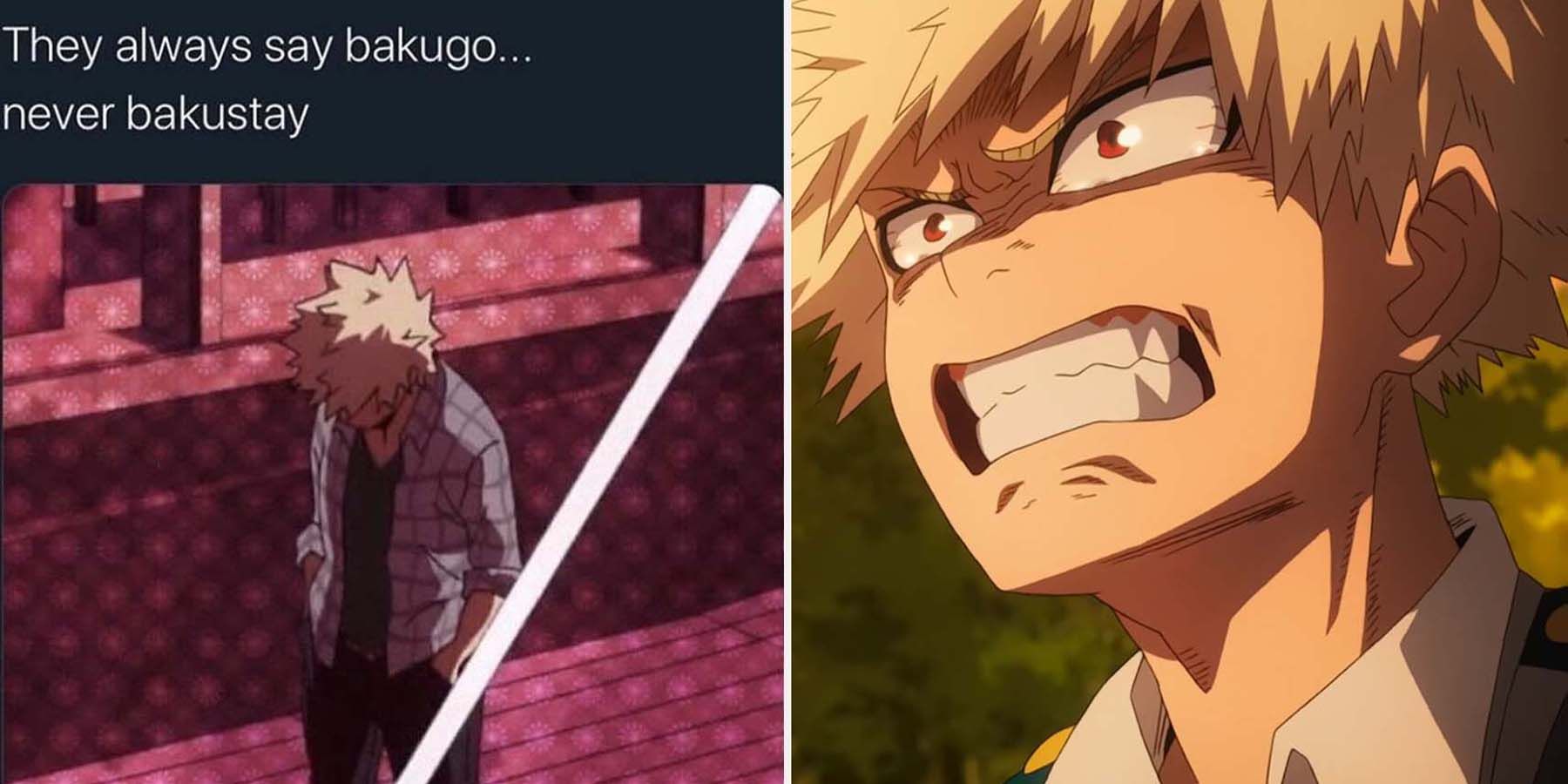My Hero Academia's new season has been a major turning point for all the characters, but one episode, in particular, dedicated itself to catching up with one Katsuki Bakugo. "Katsuki Bakugo: Rising" might be one of the most revealing looks at the character yet, but for some, it might all feel a little hollow after five prior seasons of somewhat exhaustive angst.
Bakugo is by no means a universally hated character and compared to someone like Mineta, he's consistently a high-ranked character in popularity polls; divisive at worst. Still, from his confrontational stance as a bully towards Deku in the early series to his begrudging respect for his rival in newer seasons, his attitude has been a turn-off for a lot of fans.
The Bully
The primary reason that so many people dislike Bakugo is that he comes across as a bully even long after he's reportedly developed as a character. In season 1, he bullied Deku because the hopeless romantic didn't have any powers but still aimed to become a hero, which really triggered Bakugo's superiority complex.
Bakugo's ego was his worst enemy, and given that he and Deku knew each other well from childhood, his former friend's sudden surge in power was maddening. So for the first three seasons, they were intense rivals who kept each other at a distance. They were practically strangers, and despite the bullying, Deku still admired him.
It's one of Deku's most superhuman qualities that after all the bullying he received, he still admired Bakugo's strength, bravery, and determination to become a hero. He has far more patience than most people considering how long it took for the two of them to have anything close to a heart-to-heart. Even when they did, it was mostly a fight.
Bakugo did change - that much is undeniable. The Bakugo from before Season 3 and the one after Season 3 could not be more different. On the outside, he doesn't seem much different, but - while subtle, he's more patient and more willing to cooperate, and this stems from his failures during the third season. Fans who ragged on Bakugo had always said that he didn't exude any of the qualities of a hero, and the story acknowledged that wholeheartedly.
The Villain
Season 3 was likely the moment that people either grew content with Bakugo or wrote him off completely, and it's easy to see how both sides think on the matter. The League of Villains attacked the Quirk Training Camp and kidnapped Bakugo because they saw what the fans saw: a villain. They wanted to recruit him, and to the story's credit, Bakugo's reaction to these events was a pretty big wake-up call.
From Bakugo's perspective, he'd been beaten for once and restrained long after he could raise a fuss, forced to hear the villains' offer. He was told that he was an ideal villain, and then watched as All Might, his hero, had to come to save him. When the curtain closed on the Kamino incident, All Might was officially retired as the world's greatest hero. Obviously Deku - and the whole world - was sad, but Bakugo wasn't just sad; he felt guilty.
When the two fought later that season and let out all the words they'd kept buried, Bakugo's passionate confession of guilt for having "ended" All Might put his entire character into perspective. Suddenly, more fans could understand where he was coming from and why he was such a jerk, not just in the time since the incident, but throughout the series.
Once again, three seasons later, in the aforementioned episode of Season 6, the curtain is raised once again on Bakugo through a flashback. While watching Deku on the sidelines, he talks to All Might and finally explains why he's bullied Deku in the past. Bakugo was afraid of Deku's strength of character in the face of his own insecurities, and it took him a long time to recognize that.
All Might comments that Bakugo's continued efforts to help Deku train and fight alongside him are his own way of making amends, by helping Deku get stronger and control One For All. Much of Bakugo's development can be subtle until moments like this really put everything into perspective. He's really not a one-note character, but that's not to say he's always an enjoyable one.
The events described come at times of huge milestones in a story that is about a great many characters besides Bakugo. Sure, across six seasons, it's easy to see all the ways in which Bakugo is complex when looking at the whole tapestry, but watching week-by-week and year-by-year is another story.
The Vexing Wunderkind
Katsuki Bakugo is aggressive and complicated, hiding his intellect and his consideration for others behind an unwieldy outer shell that's less akin to armor and more barbed wire. He is a lot to deal with and some can laugh off his prickly personality, content in knowing that there is some deeper meaning behind the shell, but it's just as easy to find him annoying.
Despite realizing his own flaws and working to atone for them, much of this journey of atonement is internal and heavily focused on the past rather than the present. He might be helping Deku train, so he can make up for his bullying in the past, but he still has a pretty egregious attitude 24/7 and the comedy of the series can only brush that off so many times.
There's a feeling among detractors of his characterization that he doesn't undergo enough of a change, even with the Kamino incident and his renewed approach to heroism since. He still comes off as mean-spirited and can display an attitude that is wholly unbecoming of a hero, and no one seems to mind because it's his personality and because he is - unfortunately - very good.
Sometimes he feels like he was written to be an apologist for people who are kinda bullies, like someone who has a toxic attitude but is ultimately competent so no one asks them to change. Contrary to every quality one might classically associate with a bully, Bakugo is an exceptional student, excelling not only physically, but academically as well.
Even when Bakugo lost his provisional license for his use of harsh language, the writing still made it a point to mention how exceptional his threat assessment skills were. So clearly he has the right skills and mental focus but continues to be a huge jerk. And perhaps this might not have been as persistent an issue were it not for how Bakugo was performed.
Nobuhiko Okamoto and Clifford Chapin are both great voice actors that have come to define Bakugo in similar ways and unfortunately, that particular direction might be part of the problem. He is at 100% all the time, unheroically telling his enemies to die, insulting people, and never taking a single second to just chill.
Bakugo has interesting qualities and is the opposite of archetypal, but that doesn't mean that he's the easiest to like over six seasons of television. He's changed since the start and will likely change much more before the end, but just because someone eventually fixes their problems doesn't change how long the problem has to be dealt with.




